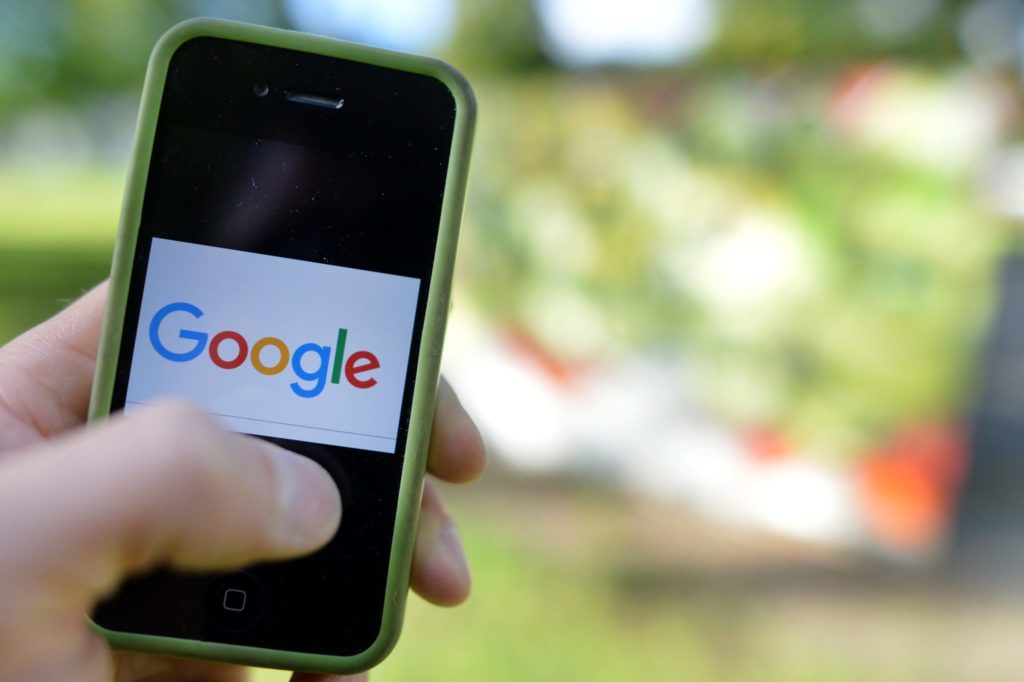A new report says there needs to be a greater commitment to the labelling of trustworthy content by digital platforms here.
The Broadcasting Authority of Ireland (BAI) says this is required to empower consumers and reduce the harmful impact of disinformation on society.
Its CodeCheck 2020 research report was undertaken by the Institute for Future Media and Journalism (FuJo) at Dublin City University (DCU).
It examined the progress of Facebook, Google, Twitter and Microsoft as they strive to increase their accountability for the content that is carried and promoted on their services.
This is done through self-regulation with the European Code of Practice on Disinformation.
The code aims to address the spread of online disinformation and fake news.
 The logo of the internet search engine Google is seen on a phone in Germany | Image: Frank May/DPA/PA Images
The logo of the internet search engine Google is seen on a phone in Germany | Image: Frank May/DPA/PA ImagesThe research was part of a wider EU project, designed to help the European Commission in monitoring the effectiveness of the implementation of the code.
It looked at efforts made by Facebook, Google, Twitter and Microsoft in Ireland over a 12-month period to November 2019.
It focused on commitments on the empowerment of consumers and the research community.
The report found that while the four platforms have introduced various actions aimed at empowering Irish consumers, the level of engagement is "mixed and inconsistent."
It said: "Actions carried out included: mechanisms to report fake news, providing greater information on the content visible on the platforms, greater control and transparency in relation to advertising and user preferences, and the promotion of authentic and authoritative information sources."
The report also found that supports in place for Irish research and academic institutions remain "episodic and largely inadequate" to help in the delivery of any rigorous analysis and monitoring of online disinformation trends here.
FuJo director Jane Suiter said: "Our findings indicate that the most significant shortcoming of empowering consumers was the labelling of trustworthy content on digital platforms.
"Our researchers could not identify any news item across any platform that had been labelled as fact-checked with the corresponding verdict on its authenticity.
"This represents a substantial obstacle in assisting Irish consumers to make informed decisions when they encounter news online.
"Furthermore, the provision of data and search tools to Ireland’s broader research community remains limited, projects and policies designed to empower the research community appear weighted towards US groups, and are far below the needs of the research community here to conduct meaningful research."
Chief executive of the BAI, Michael O’Keeffe, added: "Although the report represents some progress in the monitoring of disinformation online, and comprehensive efforts have been made by code signatories to provide greater transparency to consumers and the research community, it also indicates significant weaknesses in terms of the content and structure of the code, and the processes for reporting, monitoring and enforcing the commitments, particularly at national level."









